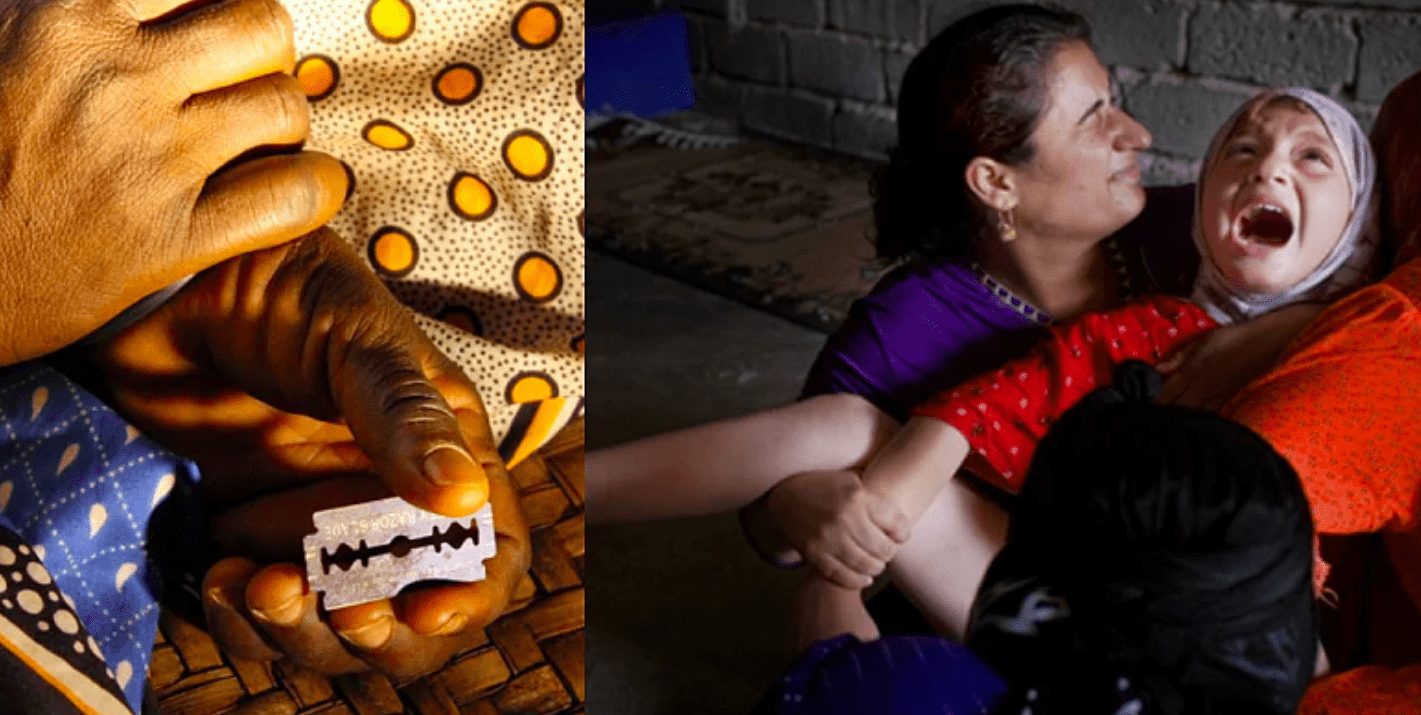Stop Female Genital Mutilation


The World Health Organisation describes Female Genital Mutilation as “the total or partial removal of external female genitalia or other injuries to female genital organs for non-medical reasons”. The organisation states that there are no health benefits of performing FGM. Females who undergo FGM tend to suffer emotional, physical, sexual and psychological implications throughout their lives. The WHO estimates that more than 200 million females have undergone FGM and every year, 4 million girls are exposed to the risk of undergoing FGM.
“Every year, 4 million girls are exposed to the risk of undergoing FGM.” – WHO
Female Genital Mutilation is an infringement of the basic human rights of females around the world. It’s increasing cases demands immediate action both by International Organizations and individual state machinery. FGM denies women the right to their bodily integrity, the right to freedom and equality.
The World Response To FGM
A UN Survey in 2014, estimated that 87% of females in Sudan between the ages of 15-49 were subjected to FGM. Leading to the ratification of a law criminalising female genital mutilation. According to this law, anyone found performing Female Genital Mutilation will be sentenced up to three years in prison. Despite this historic step, COVID-19 has led to a massive increase in the number of cases of FGM in the country. Sudan along with Egypt, Djibouti, Eritrea, Guinea, Mali, and Somalia contributes to 85 per cent of FGM cases in the world. Egypt alone has recorded 27.2 million girls who have undergone FGM with 77% of these girls being operated by medical professionals.
What’s astonishing is its existence in the western developed world. According to the Population Reference Bureau, there are currently 500,000 girls at risk of FGM in the US. An estimated 137,000 women and girls in England and Wales have already undergone FGM. Thereby literally making it as a world problem screaming to be addressed on priority basis.
To read the full report of FGM in Sudan click here.
Some Welcoming News
New Zealand welcomed the passage of the Crimes (Definition of Female Genital Mutilation) Amendment Bill on 30th July, which protects women and girls from the practice of FGM. It brings New Zealand in alignment with the World Health Organisation classification of Female Genital Mutilation. The Bill updates the laws of New Zealand to protect women and children from FGM.
The Bill has come into effect through the work of the Ethnic Minority Women’s Rights Alliance of Aotearoa, a group co-chaired by the Human Rights Commission and Commonwealth Women Parliamentarians.
Ms Marcroft, who co-sponsored the historic cross-party multi-members bill, said, “I am very proud to have been part of the very first cross-party multi-Member’s Bill. This is historically significant for us as parliamentarians and as women. What we have in common, might not be our minds or ideologies – but our bodies. This is a historic moment for our democracy, as this is the first Bill ever to have been proposed by a cross-party coalition, and by women MPs for the benefit of our girls and women.”
STOP FGM Act 2020 Passed In The Senate, US of America
The ‘Strengthening the Opposition to Female Genital Mutilation Act,’ or ‘STOP FGM Act,’ was unanimously passed by the Senate on 15th December 2020. It now awaits a signature from the President of the United States to bring into effect a Federal FGM ban.
Featured image source
